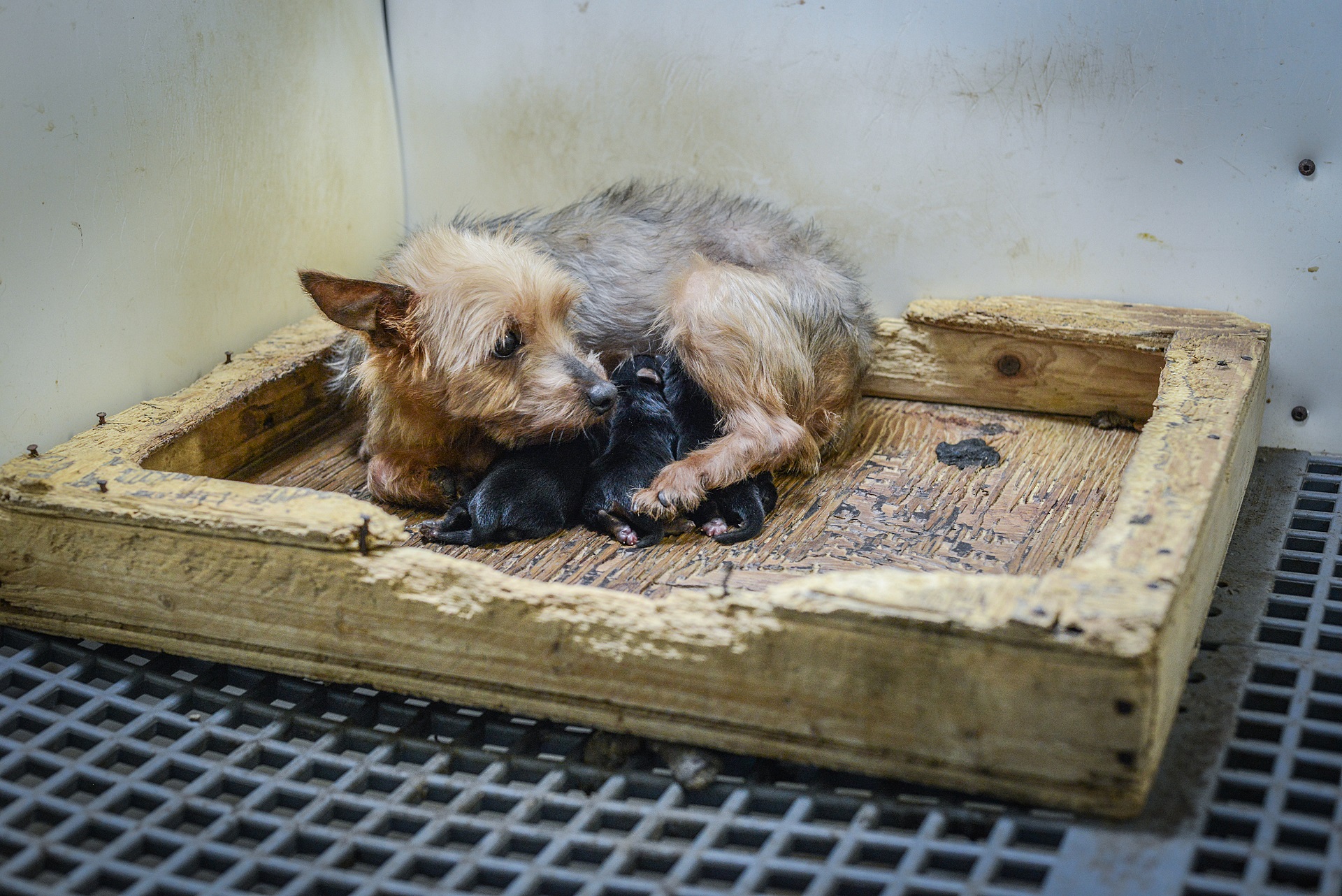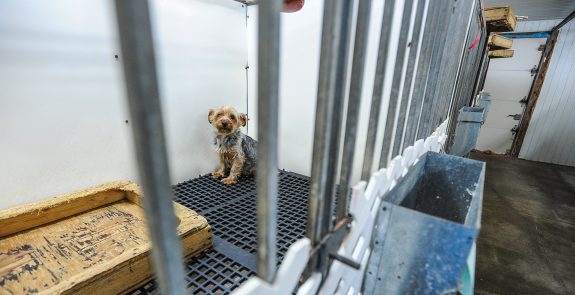Ontario has passed the Preventing Unethical Puppy Sales Act (PUPS Act), a new law that it says is aimed at tackling the pervasive and growing puppy mill crisis in the province, where dogs endure severe and heartbreaking cruelty at the hands of unethical breeders. Although the law is a small first step, Animal Justice urges the Ontario government to do more to genuinely crack down on puppy mills and backyard breeders.
This legislation, introduced by Solicitor General Michael Kerzner, amends the Provincial Animal Welfare Services Act (PAWS Act) to prohibit dog breeders from engaging in a small number of harmful commercial breeding practices.
The PUPS Act does:
- Ban the breeding of female dogs who are under a year old
- Prohibit separating puppies from their mother before they are eight weeks old
- Require that dogs with a contagious disease are kept away from others
- Keep dogs in unsanitary conditions
- Enhance penalties if distress is caused by dog breeding operations
The PUPS Act fails to:
- Require licensing for dog breeders so they can be inspected
- Create standards for adequate housing, food, exercise, socialization, and medical care, and screening for genetic problems in puppies
- Prevent dogs and puppies from being caged 24/7
- Protect dogs from being kept in inadequate conditions
- Impose limits on the number of dogs kept at a facility—one of the biggest factors impacting dogs used for breeding

Breeder Licensing Needed to Protect Dogs from Puppy Mills
Without breeder licensing, enforcing animal cruelty laws becomes nearly impossible. When dog breeders and puppy mills are not required to be licensed, authorities can’t monitor and inspect them to ensure dogs are not being mistreated.
Authorities rely on complaints to find puppy mills, yet they often operate out of barns and basements, far away from public view. This is one of the reasons they are so hard to detect and shut down.
While the PUPS Act was being studied in the legislature, multiple witnesses from animal protection groups, rescues, and shelters testified at committee meetings to advocate for a licensing regime, including Animal Justice.
In puppy mills, breeders force dogs to produce litter after litter of puppies, often in horrifying conditions. It’s common for puppy mills to have dozens or even hundreds of dogs, who are often locked in small cages 24/7, without access to regular exercise, socialization, or veterinary care.
Animals from puppy mills and backyard breeders often become ill or injured from chronic conditions, abuse or neglect, or genetic defects.
The lawyers at Animal Justice are committed to working with lawmakers to build on the progress made by the PUPS Act and look forward to future advancements that will help ensure all dogs in Ontario are treated with the care and respect they deserve.
Banner Credit: Jo-Anne McArthur | We Animals Media with the Montreal SPCA




